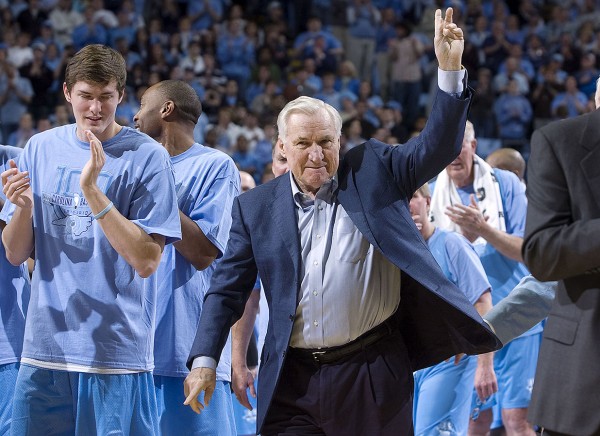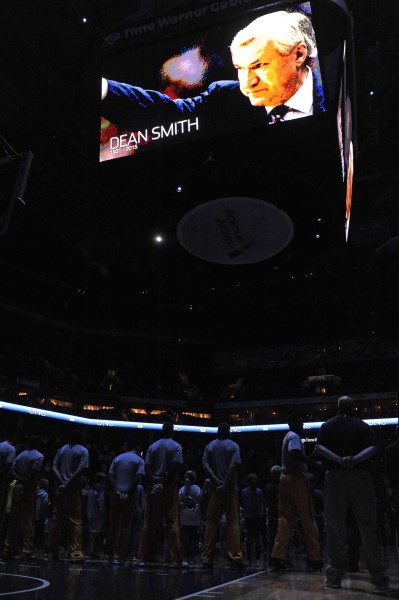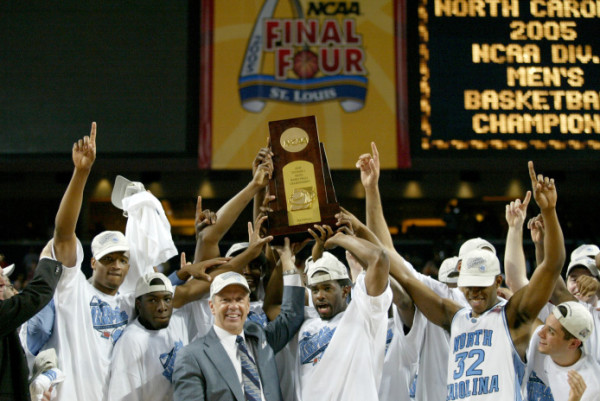College Basketball Loses a Legend: On Dean Smith’s “Carolina Way”
Posted by Bennet Hayes on February 9th, 2015After years of failing health, Dean Smith passed away Saturday night at the age of 83. The tributes flowed in all day Sunday: Michael Jordan remembered his “second father”; Roy Williams reflected on his mentor and former boss; and media members across the country (including SI‘s Seth Davis and Alexander Wolff) shared their memories of one of college basketball’s greatest head coaches. Smith’s 879 wins, 11 Final Fours and two National Titles all found frequent mention yesterday, but equally conspicuous was praise of Dean Smith, the human being. In 1969, it was Smith who ended segregation in the ACC when he offered a scholarship to Charlie Scott, an eventual two-time All-American for the Heels (and later, father of current Ohio State guard Shannon Scott). To reveal the injustices of the American prison system, Smith brought his players to witness death row first-hand and meet some of the prisoners. Perhaps most valuably, he is widely credited as being the first to cultivate a true sense of family within his basketball program. It’s why Jordan viewed him as more than just his coach. It’s also become the elusive ideal that every program in college basketball now aspires to create.
“The Carolina Way” may sound like a snippet of cheesy propaganda, but those three words would come to define Smith’s coaching methodology. More than anything, they represented the fact that if you were a Dean Smith guy, you would care about accomplishments and lessons that couldn’t be defined by a simple ‘W’ or ‘L’. Other programs and coaches have successfully constructed programs that stand for that family ideal – with Smith’s old Tobacco Road and ACC rival Mike Krzyzewski still existing as the clearest current example at Duke – but for every program that successfully accomplishes the feat, countless others will try and fail. In a contemporary college basketball era where coaches are under more pressure than ever to win, players are offered more opportunities than ever to defect (either by transfer or to the NBA), and increasingly little is private, creating and sustaining a college basketball program with a clear ethos is difficult. By being a human and father figure first and a coach second, Dean Smith built the template on how to create a program – not just a basketball team – that’s built to last.

















































